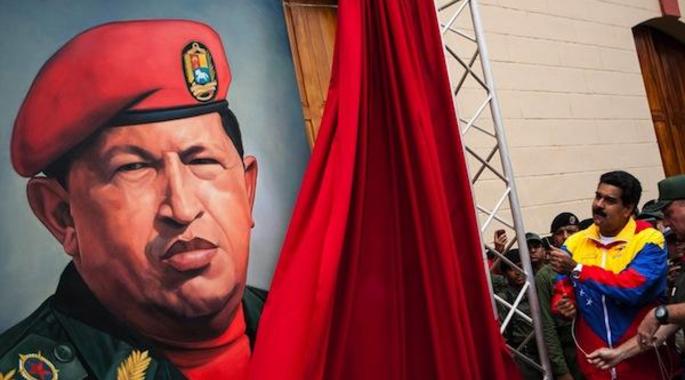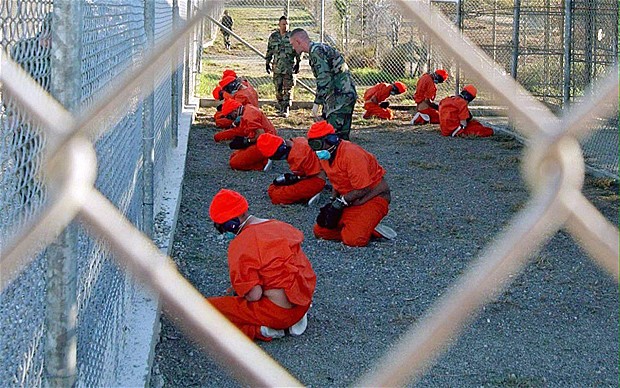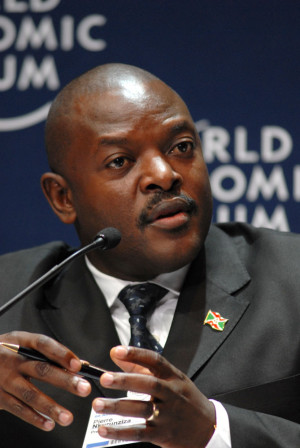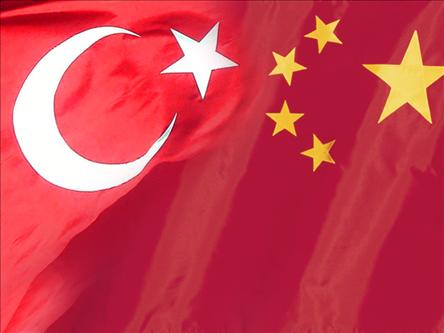After the death of Hugo Chavez, a polarizing figure both revered and reviled, Venezuelans face an uncertain future. For now, they have warily placed the country in the hands of Chavez’s chosen successor, Nicolas Maduro. Emphasis must be placed on shared history, religious practices and culture if a true Venezuelan identity is to emerge and continued polarization is to be overcome. Only a united Venezuela can steer the country away from economic disaster and towards shared prosperity.
[captionpix align=”right” theme=”elegant” width=”350″ height=”500″ imgsrc=”http://natoassociation.ca/wp-content/uploads/2013/06/Chavez-portrain.jpg”]
In 1992, a visionary young military officer named Hugo Chavez staged an unsuccessful coup against the popularly elected president, Carlos Andres Perez. Eight years later, Chavez himself was elected president with over 56 per cent of the popular vote. He looked to revered independence leader Simon Bolivar for inspiration and to lend legitimacy to his promises of widespread social and economic reforms during his electoral campaigns in 1998, 2000 and 2012. Chavez clung to the presidency tooth and nail until his death in early March 2013.
In the 1990s, Venezuela was home to some of the most inequitable wealth distribution in the world. Nationalization of private enterprise and income redistribution were among Chavez’s policies aimed at combatting inequality, winning him great support from working class and poor Venezuelans. The president’s charismatic, ‘strong man’ image constituted a modern form of populism, harking back to Juan Peron’s presidency of Argentina forty years before and garnering Chavez a great following of passionate supporters, or chavistas.
Chavez’s socialist programme included extensive expansion of health care and education. Poverty declined, and health clinics sprung up across Venezuela in low-income areas. However, income inequality did not decline precipitously until 2006, seven years into Chavez’s presidency. This serves as indication that government policy may not have been responsible for improvements in social welfare. Further, government price controls have led to scarcity of basic food items while steep inflation constricts Venezuelans’ purchasing power.
Chavistas never held the president responsible for these continuing problems; working class Venezuelans consistently showed their support for Chavez at the polls and in popular demonstrations. But for Venezuelan professionals and the middle class, Chavez left the country in shambles. The middle class saw its businesses, property and land expropriated by the government without compensation, and Venezuelans who vocally opposed Chavez were blacklisted from government jobs. Since Chavez assumed power more than a million educated middle- and upper-class Venezuelans have emigrated in a “brain drain”, which has largely been attributed to poor economic conditions and lack of opportunity, political repression, and pervasive crime.
Chavez opened the political process to the poor, but their inclusion came at great cost in other areas as Chavez intimidated and excluded those who defied him. He was a polarizing figure and his legacy, carried on by an embattled and increasingly bizarre President Nicolas Maduro, continues to divide the country.
Venezuelans cast their ballots for Maduro in April 2013. The election was hotly contested and its results disputed; exclusive use of state television to promote Madero, the use of fake IDs, and intimidation at polling stations are just three examples of the government’s disregard for electoral rules. Ultimately, the election was decided by a paltry 238,000 votes, giving Maduro an edge of just under 2 per cent. Maduro referred to the election as “Resurrection Day” and deemed Chavez the “Christ of the Americas,” statement that irked many Catholic observers in the region.
Maduro has also taken to emulating his predecessor’s oratory and rhetoric, and even his clothing, sporting the same red, yellow and blue windbreaker that Chavez frequently wore on the campaign trail. Where Chavez once displayed images of Bolivar on large screens as he appealed to the crowds, Maduro has sought to similarly immortalize Chavez. His rallies often begin with a recording of Chavez singing the national anthem, or a video clip of Chavez naming Maduro his chosen successor. He went as far as to proclaim that, while praying in a chapel in Chavez’s hometown, the late president appeared to him as a small bird and said, “The battle starts today. Onward to victory. You have my blessing.”
The close nature of Maduro’s victory is telling when compared to Chavez’s resounding one just six months earlier, in October 2012. Chavez defeated opponent Henrique Capriles with a 1.5 million vote advantage. Capriles has called Maduro a “bad imitation” of Chavez, one that is not likely to last. Indeed, Maduro’s re-election depends on the legacy of his predecessor. He was victorious in April amidst an outpouring of grief and sympathy for Chavez; it remains to be seen whether chavistas’ feelings will wane, or whether they will remain strong and continue to lend their support to Chavez’s chosen successor.
Chavez subjected Venezuelan institutions to his personal whim. He undermined the autonomy and authority of the judiciary, military, and legislature, and smothered civil institutions including religious organizations, an independent media, and the private sector. But in a country where over 30 per cent of people live below the poverty line and distribution of family income is ranked 69th in the world according to the Gini index, many Venezuelans are far more concerned with feeing their families and accessing health care, education, and clean water, than the quality of democratic institutions. Chavistas revere the late president because during his tenure, whether he is responsible for improvement of social welfare or not, they found a measure of relief.
Autocratic malaise crept through Venezuela’s institutions under Hugo Chavez. State and civil institutions must regain their autonomy in order to steer Venezuela towards democratic progress. Before this can happen, though, all Venezuelans must face the struggle of discovering their own identity. The extreme polarization that currently plagues the country will serve only to impede substantive democratization. Chavez’s legacy looms large, overshadowing commonalities between chavistas and opponents of Chavez like a shared history of imperialism and the struggle for independence, and cultural and religious practices. Importantly, chavistas must temper their reverence of the late president as a godlike figure, at least as it relates to their political decisions, if they are to unite with opponents of Chavez beneath the shared banner of a prosperous Venezuela.




